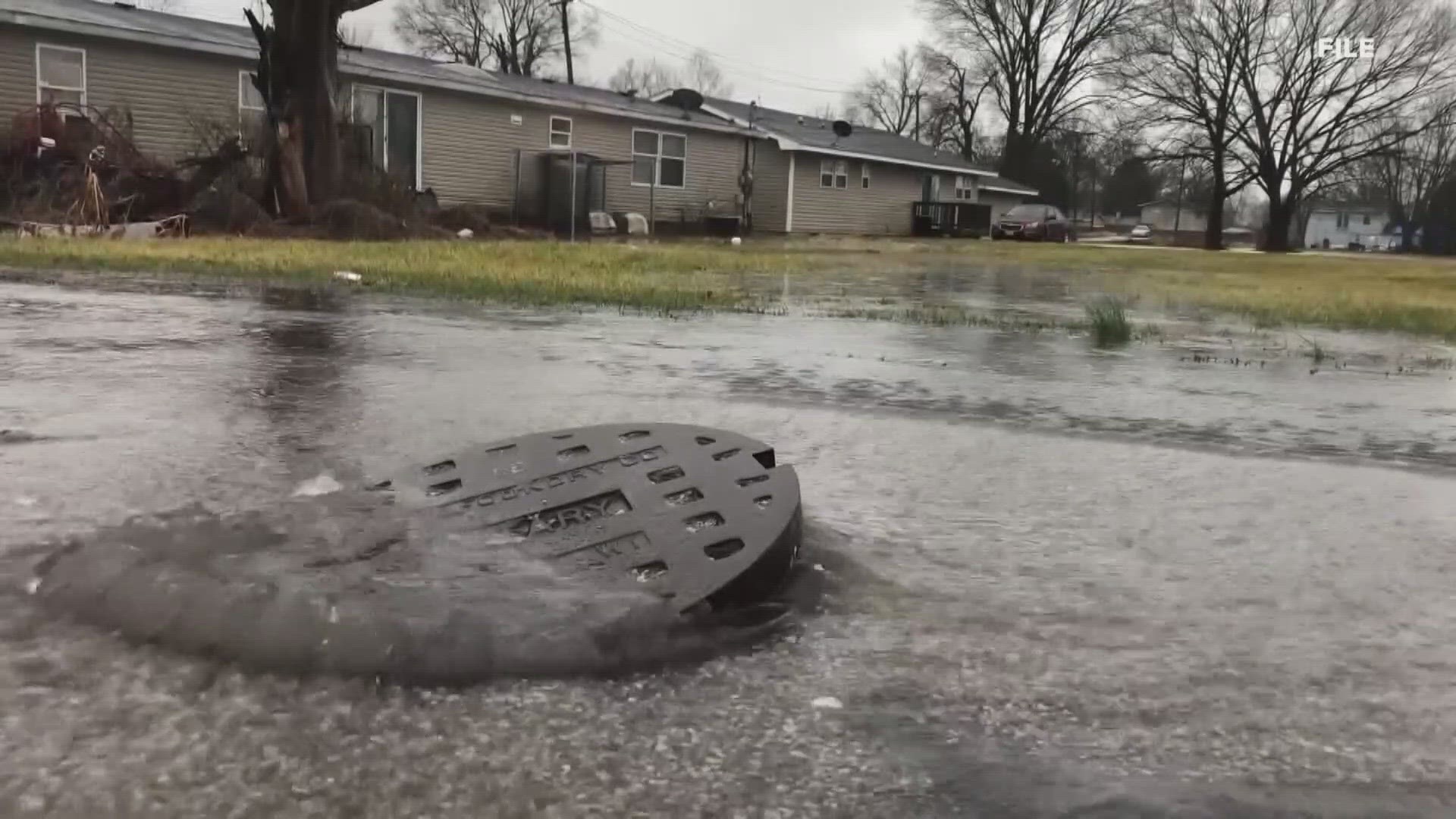ST. LOUIS — Researchers at Washington University found parasitic and bacterial infections in people who live in Cahokia Heights. The Metro East has been dealing with flooding and raw sewage for years because of failing sewer lines.
"We were very surprised," said Dr. Theresa Gildner, an Assistant Professor of Anthropology at Washington University. People she tested in the U.S. were reportedly in worse shape than the Indigenous people of South America.
"The people in the U.S., both in Mississippi and in Cahokia Heights, have much higher levels of intestinal inflammation compared to the people in Ecuador," Dr. Gildner said. "It seems like even if there is some shielding going on, having some infrastructure in place, people are having worse health outcomes in some ways."
Dr. Gildner thinks that because people in the U.S. are not aware of certain bacteria and parasites prevalent in their communities, they are not seeking medical care.
"We have been talking with doctors to tell them what we are finding," Dr. Gildner said. "So they are aware that if patients come in symptoms, maybe they should think about testing for H.Pylori or other types of intestinal infections."
In a small study last summer, researchers found signs of tapeworms and H. pylori in people living in Cahokia Heights. Dr. Gildner explains infections lead to intestinal inflammation and to bigger issues if left untreated.
"In more severe cases, people could develop ulcers or in really extreme cases, if it goes on for a long time, it's been linked with certain types of gastric cancer."
Research shows a link between high levels of parasitic and bacterial infections in flood-prone areas with lacking sewage systems, like Cahokia Heights.
"My hope is that in the long term, we can work towards bigger structural changes and improving infrastructure," Dr. Gildner said. "Really making sure people aren't exposed in the first place and they don't get sick at all."
If you live in Cahokia Heights and are interested in participating in the study, you can stop by the library starting tomorrow between 9 a.m. and 3 p.m. to register. The research team from Washington University will be there most days during the month of August. You can also reach out to Dr. Gildner directly at gildner@wustl.edu to schedule an appointment.
Top St. Louis headlines
Get the latest news and details throughout the St. Louis area from 5 On Your Side broadcasts here.

